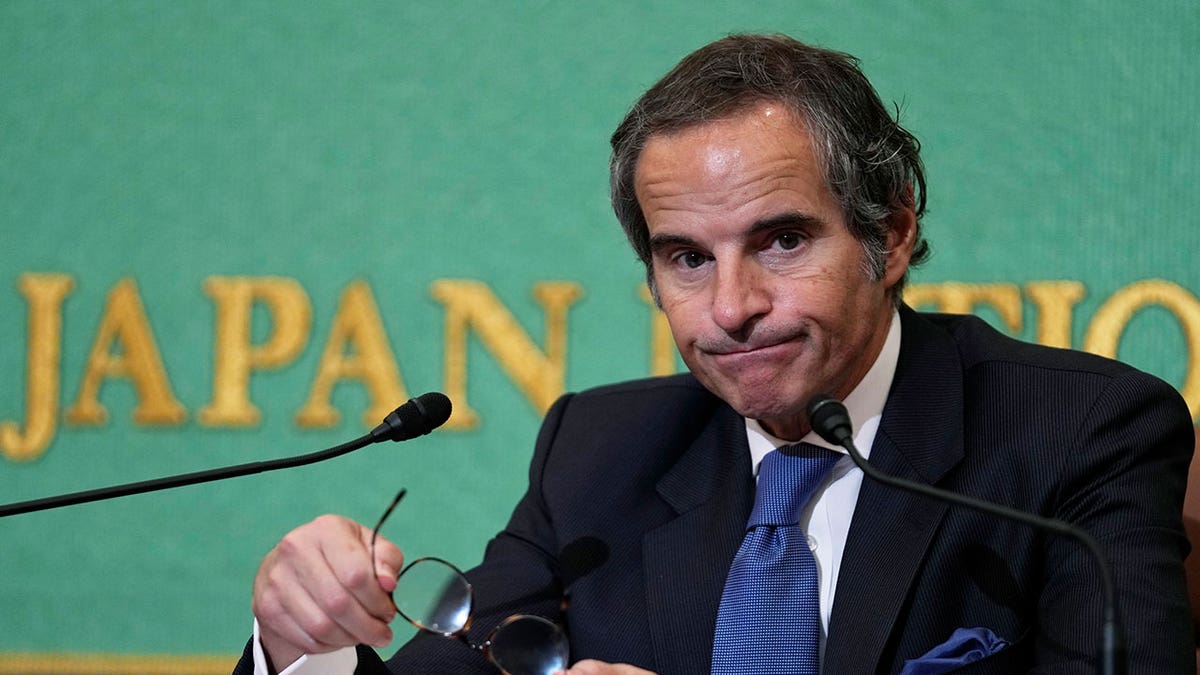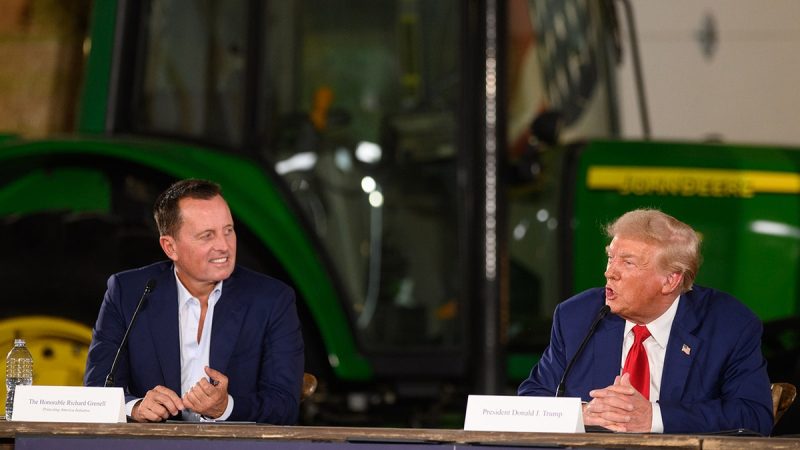Iranian officials continue to frustrate International Atomic Energy Agency (IAEA) inspectors, who have suggested that Tehran has stockpiled enough enriched uranium to make 'several' warheads.
'Though it may be drowned out due to all the other bad news out of the Middle East involving Iran, the regime is getting closer and closer to establishing itself as a threshold nuclear state,' Behnam Ben Taleblu, a senior fellow at the Foundation for Defense of Democracies (FDD) with a focus on Iranian security, told Fox News Digital.
'If anything, Iran seems to be capitalizing on all the mayhem in the Middle East, mayhem which Washington has failed to curb or manage well, to press ahead in what appears to be a quest for the ultimate deterrent,' Taleblu added.
The IAEA, a U.N. nuclear watchdog, has tried for months to monitor and examine Iran’s stockpiles of enriched uranium. Rafael Mariano Grossi, the director general of the IAEA, in Jan. 2023 warned that Iran had enough highly enriched uranium to build 'several' nuclear weapons if it so chose.
Iran has seemingly benefited from what the Wall Street Journal termed President Biden's policy of 'conciliate to evacuate,' or developing agreements with Iran to reduce U.S. presence and responsibility in the Middle East. In a Fox News Digital op-ed, FDD senior advisor Richard Goldberg and Rep. Darrell Issa, R-Calif., determined that Iran has received some $50 million from the Biden administration's policies of sanctions relief - a reversal from former President Trump's maximum pressure policies.
Goldberg and Issa slammed the administration for effectively emboldening Iran's commitment to terrorism through its various proxy groups, including Hamas, Hezbollah and the Houthis, whom the Biden administration this week redesignated as a terrorist group, though they fell short of using the maximum designation as a Foreign Terrorist Organization.
In addition to increased attacks from Iranian proxies over the past few months, Iran withdrew the designation of 'several experienced Agency inspectors,' according to Grossi, which amounted to 'effectively … about one-third of the core group of the agency’s most experienced inspectors designated for Iran.'
Tehran then sped up enrichment in Dec. 2023 following a monthslong slowdown that many attributed to back channel agreements with the U.S. that led to the release of American citizens held in Iran. The IAEA also determined that Iran had enough uranium enriched up to 60% - close to weapons-grade – to produce three nuclear bombs.
Iran continues to deny it seeks a nuclear weapon and that its enrichment is purely for peaceful purposes.
Grossi issued his latest warning earlier this week at the World Economic Forum, where he accused Tehran of holding the agency 'hostage' due to the 'frustrating' lack of oversight. He again raised concerns that Iran, if it so chose, could create several nuclear warheads.
'It’s a very frustrating situation,' Grossi said during an interview at Davos with The Times of Israel. 'We continue our activities there, but at a minimum. They are restricting cooperation in a very unprecedented way.'
'It’s a way to punish us because of external things,' he claimed. 'When there’s something that France, the U.K. or the United States says that they don’t like, it is as if they were taking the IAEA hostage to their political disputes with others. This is unacceptable for us.'
He described the situation as a 'plateau' that 'could change in the next few days … we never know.' He argued that right now the world needs 'diplomacy, diplomacy, diplomacy.'
Grossi told Bloomberg that he did not understand why Iranian officials 'don’t provide the necessary transparency.'
The nuclear chief acknowledged that the IAEA had yet to detect any diversion of material for weapons, but the manufacture and storage of such significant amounts of nuclear material has raised concerns.
Taleblu highlighted Grossi’s various comments, noting that, 'When the IAEA director general keeps talking about a ‘new reality’ with Iran, it’s worth more than just a listen.'
'Iran’s amassment of more highly enriched uranium, production of said uranium at greater speeds, and diminishing transparency and cooperation with the U.N. nuclear watchdog are all ways the regime is showcasing its intent,' Taleblu said. 'It’s a sign that the Biden administration’s restraint-based approach has not begotten restraint from Iran.'
'Iran’s lack of even incurring a solid slap on the wrist at the Board of Governors is propelling it ahead to continue to amass capability in what may be a quest to present the West with a fait accompli at a future time of its choosing,' he added.
The White House did not respond to a Fox News Digital request for comment by the time of publication.
The Associated Press and Reuters contributed to this report.




